Our blockbuster FTC disclosure awaits here. The following article was last updated on Nov 22, 2024 ...
Wreck to Reckoning: Coping With Rider Fear
Crashing sucks. But I'll bet you knew that already. I suppose fear in the eyes of tearful mothers, timid, terrified uncles, aunts, bosses and random strangers has told that to us many times over.
They're not wrong. Crashing a motorcycle is a lot more likely to lead to serious injury and death than crashing a car. We all know riders who have been injured or even killed and many of us have been injured. And even if you've never crashed or been injured, it's pretty obvious riding motorcycles is not exactly a nice safe game of tiddlywinks. Only morons are fearless.
“Coping with, even embracing fear after a motorcycle crash is as important as making informed decisions about returning to riding.”
I myself have survived three serious injury motorcycle accidents, collecting three broken left femurs, two broken right wrists, a cracked ankle and a bit of PTSD in a pear tree. Yet, I still ride motorcycles. I ride a lot and I ride far and I ride with (ahem) a fair measure of rapidity.
Why? We all know why we ride. 'Nuff said.
How? Now that's the question. I'll share what little I know about how I've managed the trick so far but I know there are many more angles to this question. I hope we can begin a conversation on a topic we rarely ever discuss openly: Fear.
Enter Fear (I'm Scared And That's Okay)
I'm terrified every single time I pull my helmet on. There, I said it. It feels very strange to admit it publicly but I don't think I'm alone in this.
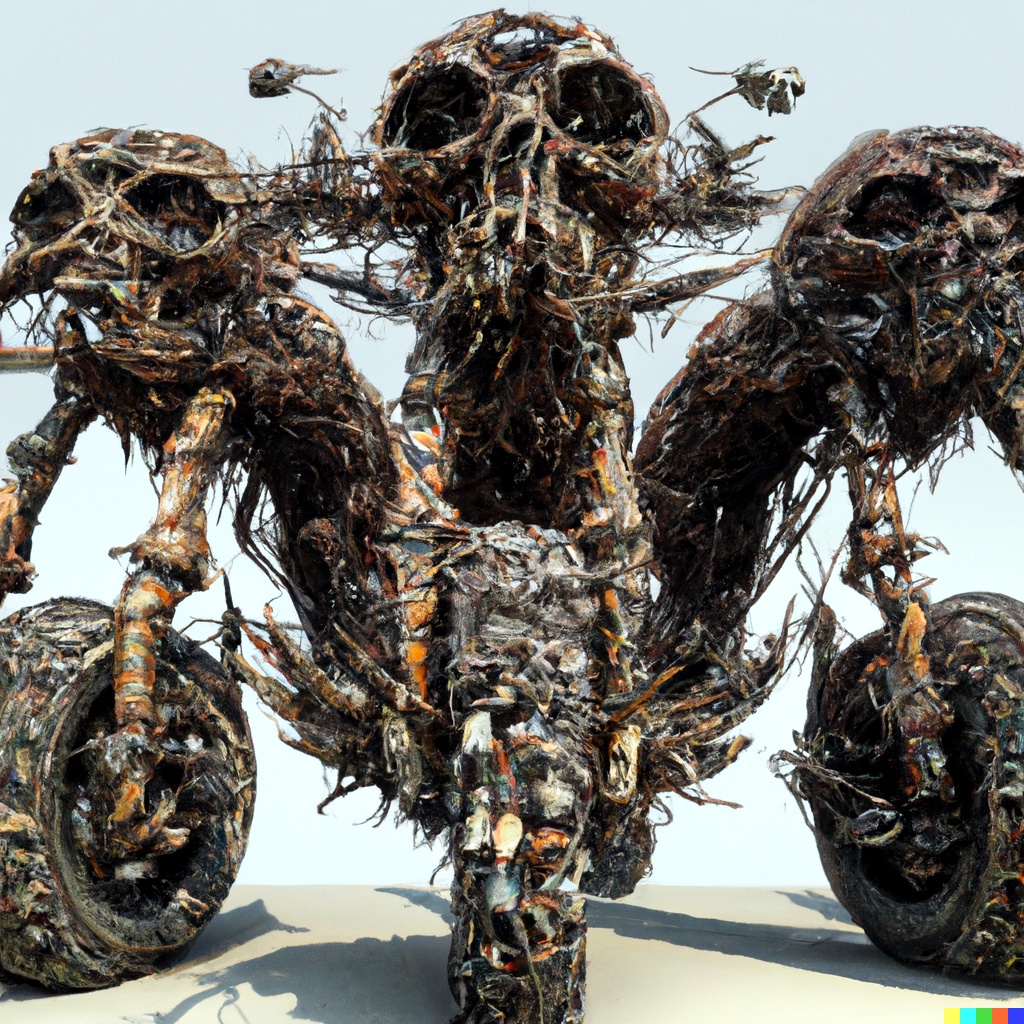
I know firsthand in living pain-o-matic, surround-sound, crunch-o-vision exactly what I'm risking. Trust me, you don't want to see my x-rays and I don't want to see yours.
Yet if I don't master the Fear (capitalized out of respect) and find ways to make use of it somehow, there's no point.
I won't enjoy myself or be able to thumb that starter button.
So far, I've mostly been able to manage the trick but I don't quite know how. If you ride with me, you've probably never noticed. My hands don't shake, there's no thousand-yard stare but there's always a moment where, alone in my helmet, I pause for a heartbeat or two and wonder "Can I do this? Can I flip that switch today? Where is that damn switch, anyway?"
So far, I've been able to re-route the Fear energy to where it's needed: conduits of respect, vigilance, awareness, skill and judgment. But maybe one day, I won't be able to and that's pretty terrifying too. Maybe more.
Embrace Fear
For me, this was step one of riding recovery and now it's step one of every ride: feel the Fear. Go ahead. Be scared. Respect the Fear. It's your monkey brain and your body trying to keep you alive. You have to look that Fear in the eye and embrace it and understand it before you can start using your brain's higher functions to do anything about it.
“ I understand that fear is my friend but not always. Never turn your back on fear. It should always be in front of you, like a thing that might have to be killed.”- Hunter S. Thompson
Ignoring Fear never works. It's too powerful. It will come out. Stiff arms, target fixation, fatigue, soreness, even anger and stomach upsets are all symptoms of unmanaged Fear.
Like rain, cow poop in corners and stray Buicks, Fear is an everyday reality and an ever-present challenge of riding. Ignoring the fact that it's raining won't do any good and it's the same with Fear. It's there. Acknowledge it. Know it and then you can find ways to handle it.
After The Fall
So. Let's say you crashed, you're hurt and you have assorted trauma and physical recovery to deal with. What are some of the steps to take and things to consider while you heal and scour eBay for motorcycle parts?
Don't Make Any Ironclad Decisions Right Away
The biggest decision is: should I try to ride again? A surprising number of well-meaning people will ask, or just assume you're done riding forever. Take the pressure off.
Give yourself permission to defer your decision to return to motorcycling. Give yourself permission to seriously consider not returning to motorcycling and think about what your life would be like. Give yourself permission to change your mind either way at any time.
If you drop it for the time being, maybe you'll get the bug later when you're feeling better or maybe you'll recover, go for a few rides and realize it's not fun enough any more.
It's totally up to you and it's not always predictable. "Is it worth it?" is a question only you can ask and answer. And the answer can change.
Think About Your Loved Ones
When you're hurt, it affects everyone who cares about you. Ask your loved ones and family for their input. Sometimes they just want to be heard and considered. Often the ones closest to you will understand what riding adds to your life and your mental health better than you and be unexpectedly supportive.
Once in a while someone will attempt to forbid you from riding. This can come from genuine concern, or it can be toxic. The decisions are yours but you have to respect the fact others do share in your risks and you need to be prepared for some difficult conversations.
Stay In Touch With Your Riding Buddies
It's easy to get caught up in a whirlwind of doctor appointments, physical therapy, etc. Do what you can to stay connected to your riding community. My closest friends are those I ride with. They've been essential to my assorted recoveries. I hope I've been a part of theirs.
And of course, if you have an injured riding buddy, call, visit, email and text as often as you can. Help them patch up their bike if needed. It'll do a world of good. Nothing's more lonely than just sitting around waiting for bones to heal and riding friends have much-needed perspective and insight.
Don't Push It (Fear Isn't Fuel)
Take riding recovery slowly. Even if your body and your bike are healed enough to ride, your brain needs time to adjust as well. Don't schedule any big rides or put pressure on yourself to ride a certain distance or whatever.
Physical recovery takes an astonishing amount of energy; expect to feel sore and exhausted even after a very short ride around the block. And the terror of the first few rides is exhausting as well. Build seat time slowly.
Insist On The Best Available Sports-Based Physical Therapy
It took me three crashes to figure this out, unfortunately but approach your recovery as an athlete who wants to return to the field. You might have to fight for this and it will probably be expensive but riding is in fact an athletic activity, it's an important aspect of your quality of life and good physical therapy is essential to returning to the saddle after serious injury.
The results can be astonishing, especially if you're one of those rare patients who actually does their home exercises as prescribed.
Back In The Saddle Again
Your bike is patched up (or replaced). You're able to hobble out to the garage and swing a leg over. Now what?
Hello, Fear, My Old Friend
You're going to be scared, so just get used to that fact. This is your reality now, so you have to start finding ways to manage Fear. There's no such thing as ignoring it. It's about risk management, true but you also have to understand and balance the things that cause the sort of fear that can make a ride unfun or worse, make you lock up or lose focus.
“ Being shot out of a cannon will always be better than being squeezed out of a tube. That is why God made fast motorcycles, Bubba.”- Hunter S. Thompson
Look the beast in the eye and ask yourself questions. What's scaring me right now? Is it proportional? Is it a response to something in particular? Is this too scary to be fun any more? Is this proportional? What can I change to manage this?
And it's perfectly okay to listen to Fear when you need to. I've shocked people a few times, saying out loud something like "Dude, I'm scared. This water crossing scares the whimpering spit out of me and I'm not doing it. I'll find a way around and meet you on the other side."
The trick is to tell the difference between good Fear and bad Fear and what to do about it. When you can name it and own it, then you can start to think about it and deal with it.
Build Better Memories
Over time, I've found some of the best medicine is to build a collection of better riding memories. I have some movies in my head with very bad endings, so I've tried to drown them out with lots and lots and lots of memories of perfect corners, sunny/perfect days, off-road obstacles overcome and gorgeous countryside.
As you return to riding, be mindful about building that storehouse of great riding memories. Plan great rides and pay special attention to the experiences you'll need to find your joy. Get into the moments and store them away.
Manage Your Personal Minimums
There's a concept in piloting called "personal minimums", the idea that every pilot has specific conditions where they'll modify or cancel a flight, even if it's technically okay to fly. For example, many pilots have personal crosswind limits or always carry extra fuel reserves.
Personal minimums, decisions made before riding, are one good way to manage Fear because they're a way to logically and thoroughly think about risk and risk factors before you get scared.
For example, my last accident was hitting a deer. As I later learned, we were riding in early November, just at the height of the deer mating season when they're running around the most and not paying attention. I had no idea, so now, one of my personal minimums is that I won't ride outside the city from late October through most of November.
Another of my personal minimums is that I won't ride at night on country roads (as they belong to deer and other critters). I avoid stacking risk factors. For example, I try not to combine rain with darkness and cold.
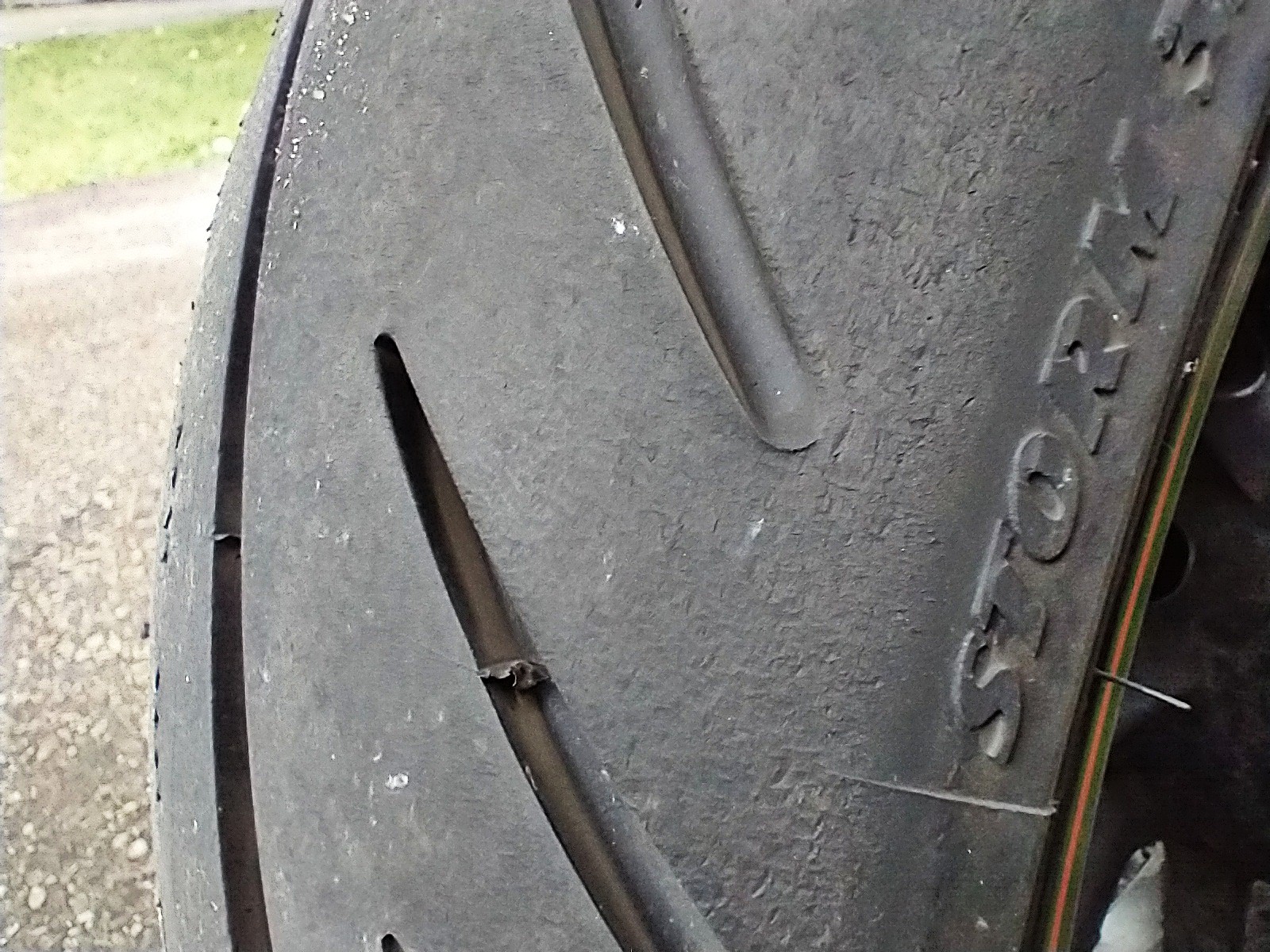
I also have a "personal maximum" around lean angle and available traction. On the street, there's a certain percentage I'll use and no more. You can literally see my personal maximum in this shot of my new rear tire after a trip to the twisties of Missouri. The tops of the letters on both sides of the tire are worn but I won't go to the sidewall (or peg feelers).
It's part of an overall risk management (AKA Fear management) mindset that makes you safer and reduces Fear. Your personal Fear Management Matrix (ooh, maybe I should trademark that) will be different.
Get Educated
Even if your accident wasn't a failure of skill, increasing your riding skills in any way will give you more confidence, tools for dealing with more situations and also help you nab more of those warm, fuzzy riding memories to make the crash movies fade.
Reading books and practicing techniques is a good start but keep an eye out in your area for any sort of in-person training or coaching you can soak up. It's always worth the money, time and effort. Dual-sport or off-road training, street training, even track training. Schools take a lot of care with safety and you'll revolutionize your riding.
The more you know, the more fun you'll have and you'll be safer, with less Fear.
Get Some Knobbies
Along with increasing your skills, dual-sport and off-road riding and training helps get you used to the idea of your bike sliding around. You'll stop panicking with every little wiggle and wobble and you'll know what to do in all sorts of weird situations.
Plus, there's little traffic, no cops and lower speeds out on the filthy bits and you can get to some really interesting places.
I've also found that the inevitable drops and oopsies off-pavement help rewrite the script for the crash movies in my head. Falling off sucks no matter what and it's always risky but when I can get up with no damage, pick up my bike and continue, it's also very freeing.
My first few off-road drops caused a great deal of panic and pretty much ruined the rest of the day. Now? No big deal.
Let's Talk About Fear, Baby
See, motorcycling doesn't make a damn bit of logical sense. We ride purely because we love to ride. That's the only reason we have and the only reason we need.
“Faster, Faster, until the thrill of speed overcomes the fear of death.”- Hunter S. Thompson
At the beginning of the day, when you're waiting for the coffee to kick in, you're staring through the dingy window of a distant backwoods fleabag motel at a gray drizzly 45 degree day and your poor abused skeleton aches and aches, when you can't stop that endless crunching crash loop in 360 degree technicolor 3D and Dolby surround sound from playing over and over and over and over and over and over in your head, when the Fear makes your hands shake and your bowels lurch.
These are the times when that love of riding is the only thing that might carry you through it.
So, how do I do it? I'm still not sure.
Let's talk about this stuff. It's important. Let's support each other with open, honest, vulnerable conversations about Fear. Let's share and experiment and find more ways to ride healthy and happy.
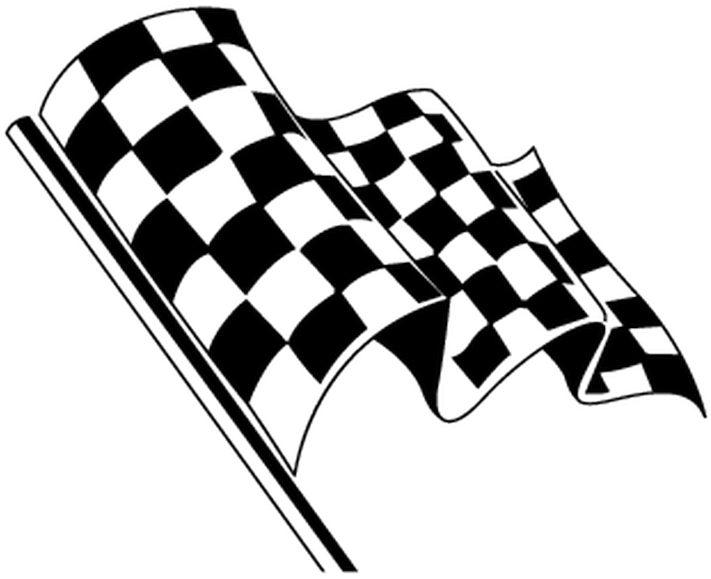
How Do You Accept (And Fend Off) Fear?
What works and what doesn't? What methods do you put to practice? Your input is invited. Leave a comment and/or write an article!
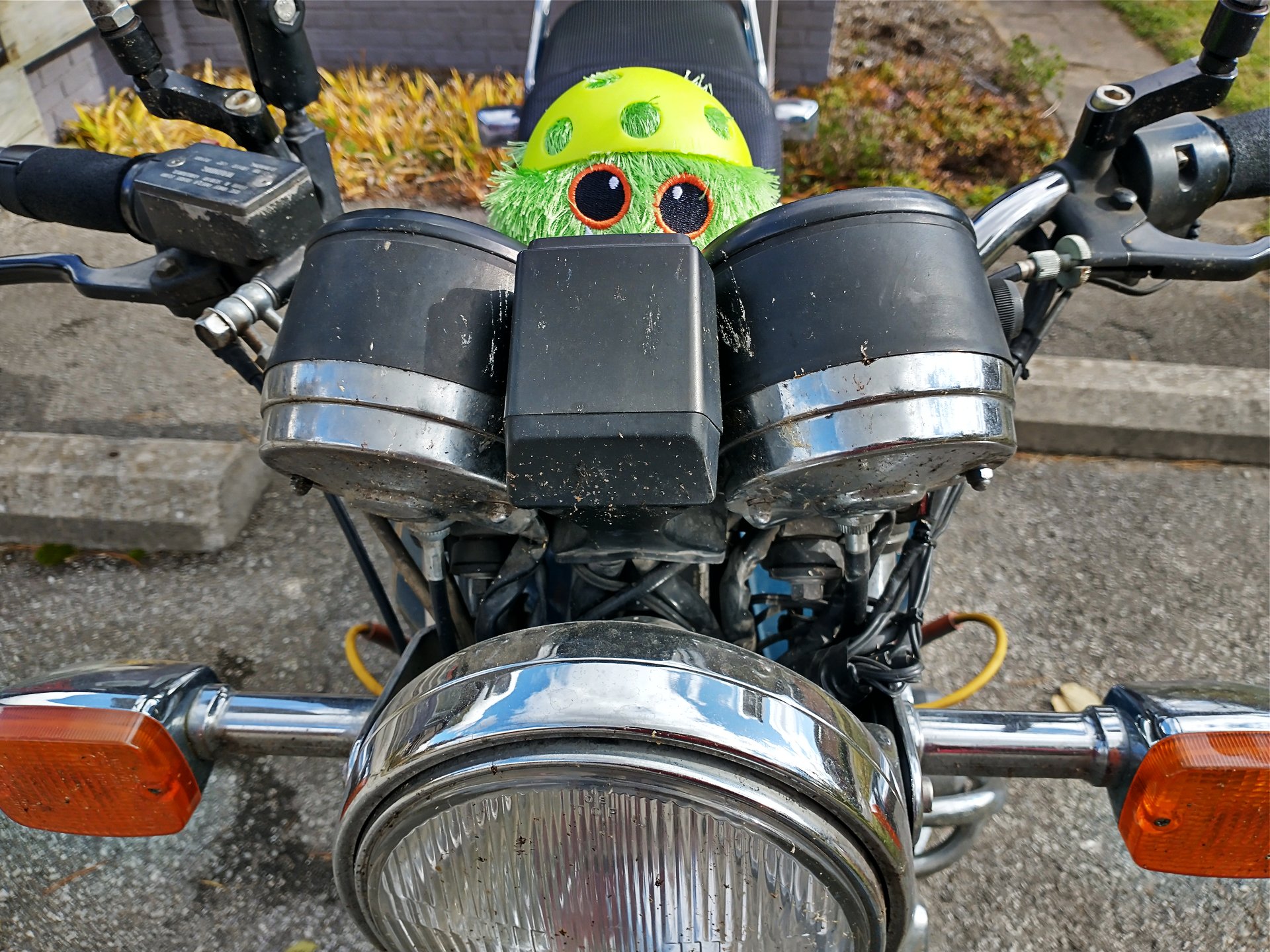
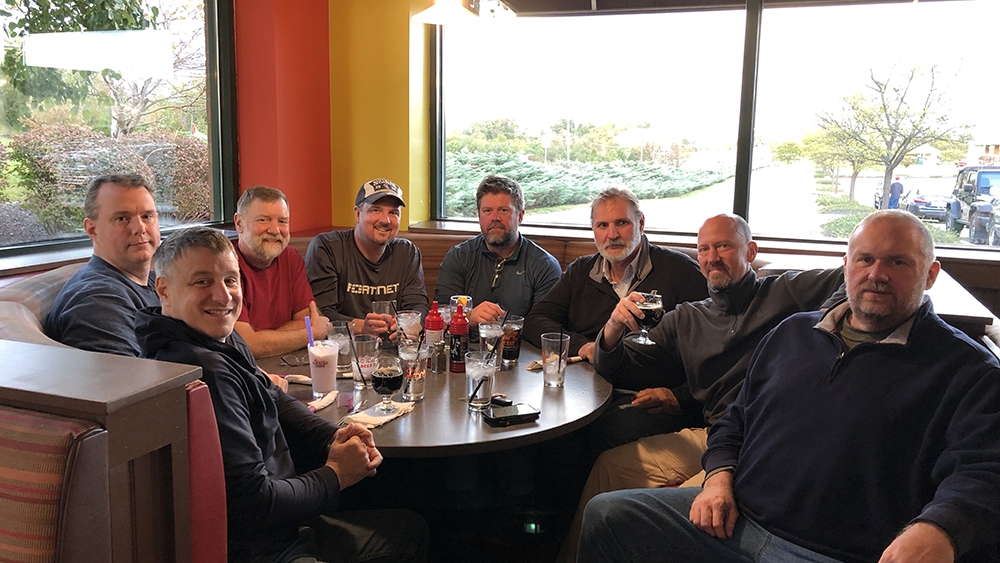
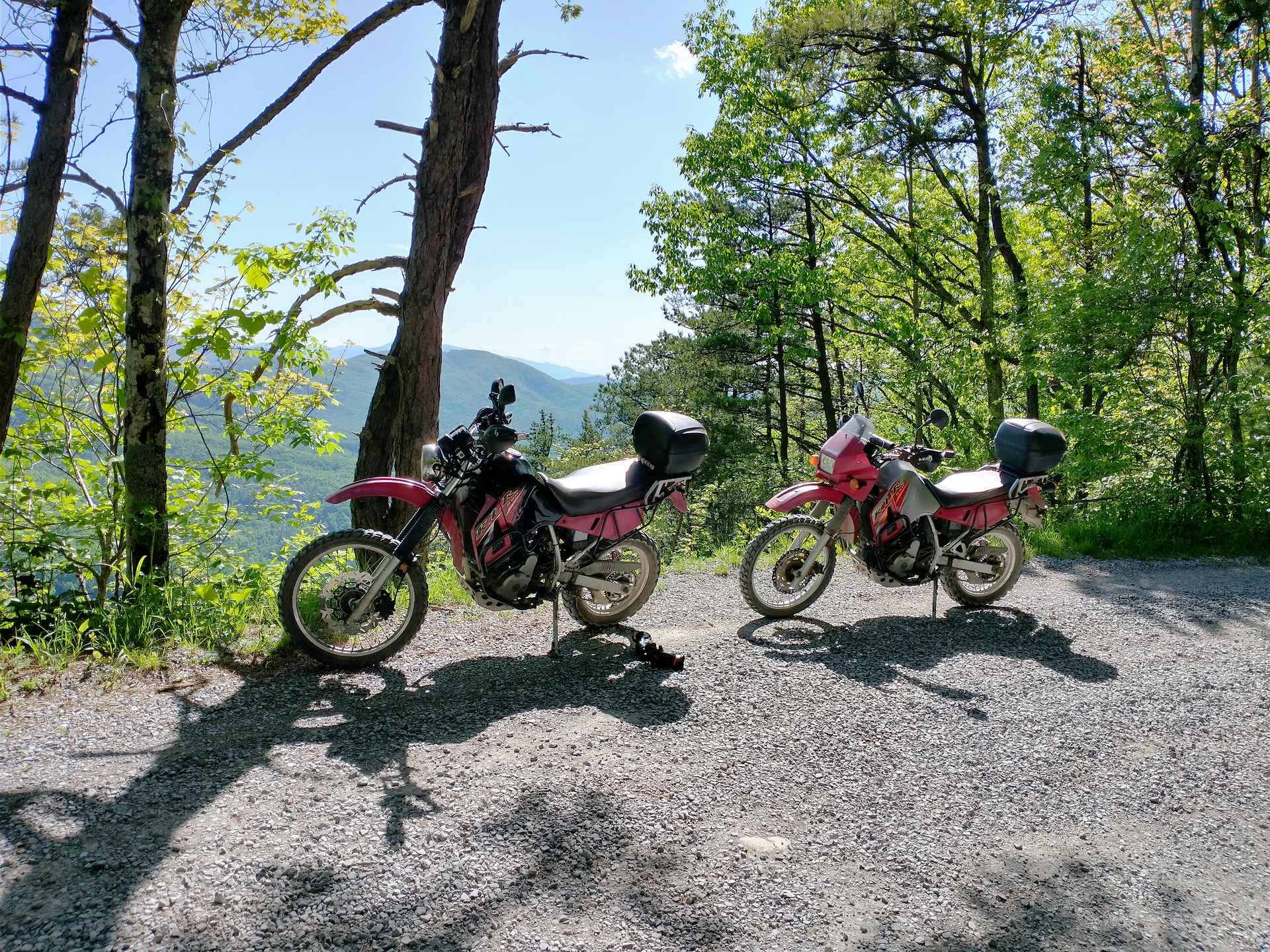
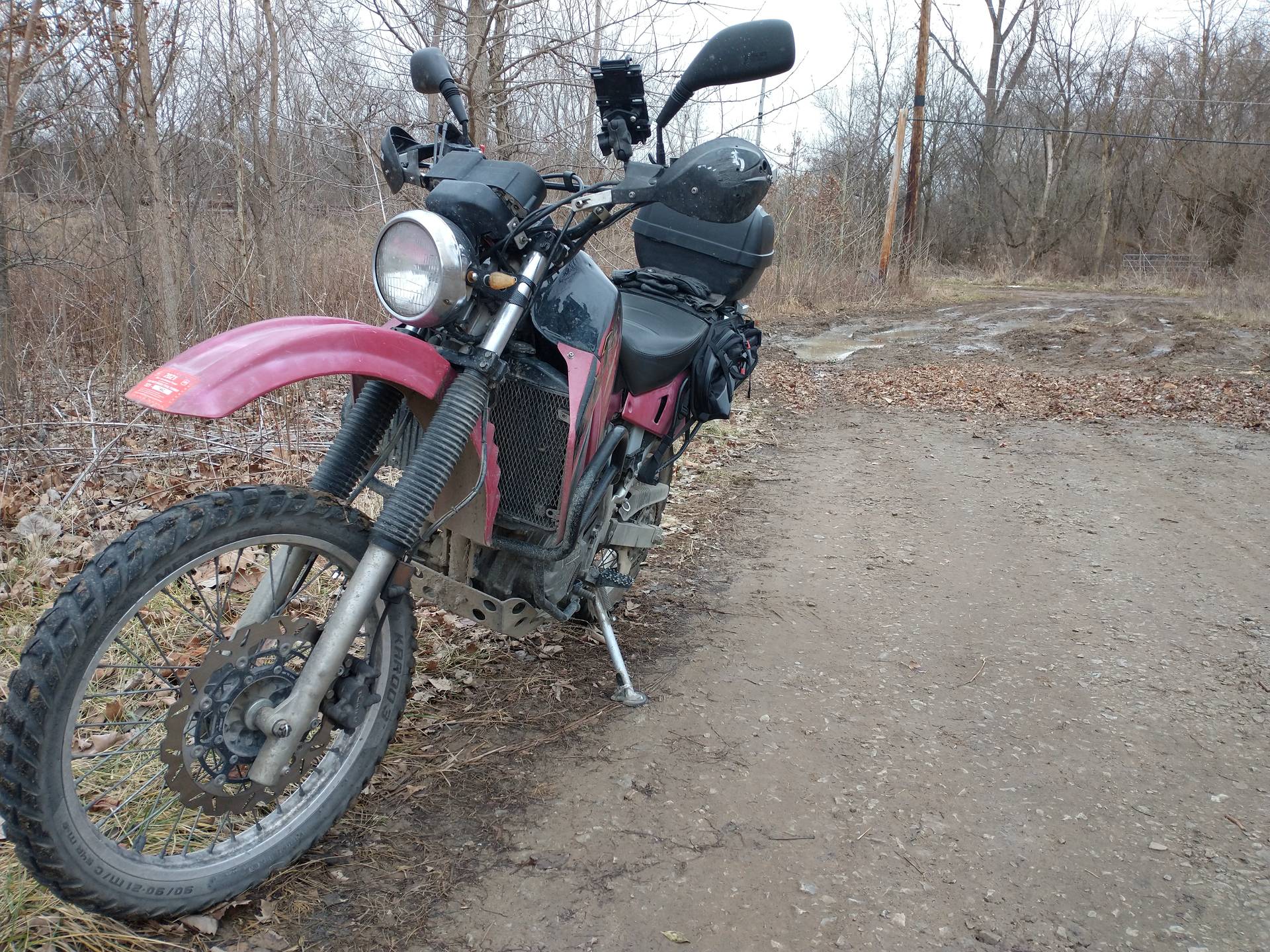

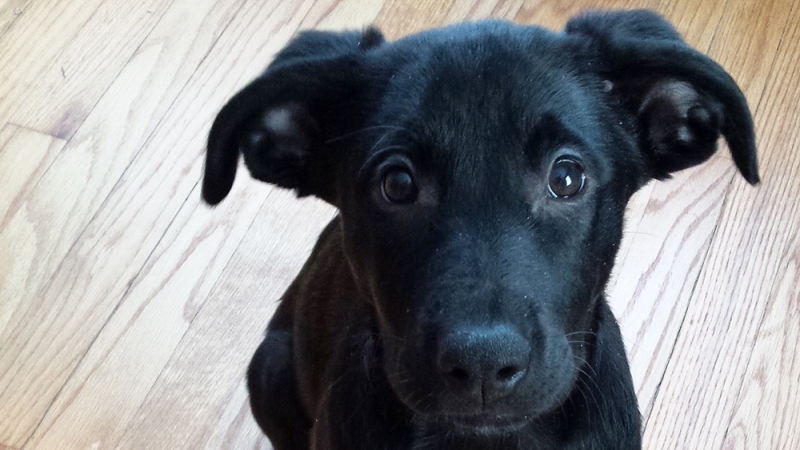

Comments
After losing a Kidney to Cancer in 2010 I thought long and hard about returning to two wheels. I no longer have a spare. I considered what riding adds to my life and then realized I never heard of anyone losing a kidney in a motorcycle crash. I wear protective gear and don't ride as close to the ragged edge as I once did but I continue to ride! Great writing Brian!
Thanks for reading, Scott! Yep, there are definitely some tough decisions to be made as life happens.
I remember lying in the hospital with broken leg #2, and someone (who obviously didn't know me very well) asked my wife "Are you going to let him ride again?"
She said "Let him? We don't tell each other what to do. And I don't even want to be around him if he can't ride."
Motorcycling has made my life immeasurably richer (well, richer in experiences... definitely poorer in dollars), and the equation still tips heavily in favor of riding, with adjustments to my personal minimums here and there. Training and dual-sport riding have greatly expanded my personal minimums as well.